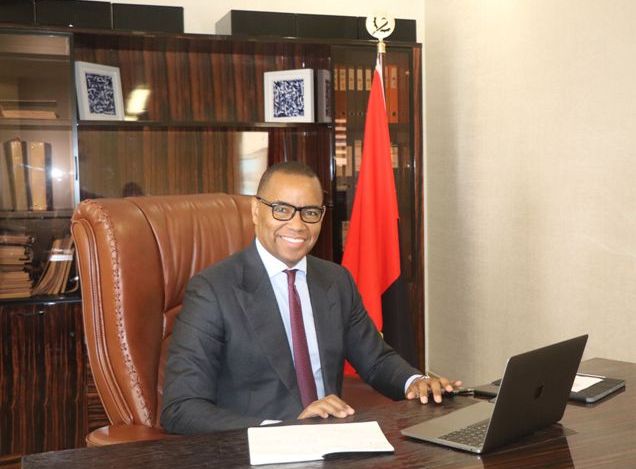Angola’s recent international investment drive is slowly paying off, the country’s economy is showing signs of recovery with much growth expected in the next few years. One of the key figures behind this ambitious project is the highly respected António Henriques da Silva.
Da Silva, who is the Chairman of the Board of Directors for the Agency for Private Investment and Exports Promotions of Angola (AIPEX) and the Chairman of the Board of Directors for the Luanda-Bengo Special Economic Zone (ZEE), shared some valuable insight into the country’s plans to boost the economy and attract foreign direct investment.
1) How would you describe the current economic conditions in Angola?
Angola is steadily working towards solidifying a positive macroeconomic landscape. We are also working on recovering the economic drawback through key economic and financial reforms which aim to counter the decline caused by the diminished productivity in the oil industry. The government has also implemented strategies to promote non-oil sector-related GDP growth by diversifying and prioritising investments in other key areas such as agriculture, mining and energy. According to the world-renowned Fitch index, Angola’s real GDP growth is currently at 0.1% for 2021 following a contraction of 5.1% in 2020 and economic metrics indicate the growth to recover to 2.9% by 2023.
2. Has the move towards more transparency and the rooting out of corruption improved investor interest in the country?
As reported in the Transparency International Index, Angola’s corruption index appeal reached an all-time high in the last quarter of 2020 and maintained a gradual growth rate in 2021. This, in turn, translates to a friendlier free market for foreign investors. The FDI index of Angola has also recovered this year and has started to show increased growth off the back of the crippling COVID-19 pandemic. The total FDI in terms of percentage growth to the GDP for 2021 is slated at 22.2%, and this is due to increase to 23.1% in the next five years.
3. Given the current economic climate and the effects of COVID 19 – is this a good time for investors to come to Angola?
Yes, it is indeed. Our new reforms target an increased diversification of the national economic portfolio with a focus on non-oil sectors. The Angolan government strongly supports FDI as this is a necessity for the diversification of the economy. The importance of the New Private Investment Act of 2018 and the president’s new policy to promote trust in compliance by fighting against corruption further supports this. Investors, foreigners, or not, have the same right of access to incentives, even if the policy of “Angolanization” aims to promote the employment of nationals. Regarding capital repatriations, the law guarantees foreign investors the right to transfer dividends or other income from a direct investment out of the country. Ever since 2020, importing capital from foreign investors willing to invest in Angolan companies is immune from licensing by the Angolan central bank. To further the diversifying of the economy, authorities are looking to restrict the inflow of imports thus stimulating production and self-sustainability garnering vast opportunities for investors to do good business.
4. Angola also has the much acclaimed Luanda-Bengo Special Economic Zone or ZEE – how does this compare to other Special Economic Zones?
We are working on ensuring that the ZEE will set the highest standards in the region, and subsequently, with hard work and the application of numerous development strategies we want to achieve a good position in Africa and internationally.
To differentiate from other Special Economic Zones, the ZEE provides a variety of services such as:
- Public Transport for all employees at the ZEE
- Safe movement within the zone
- Onsite security, civil protection and fire brigades
- Transport services and load lifting within the zone
- Waste collection
- Onsite fuel pumps
- Waster water and rainwater treatment
- Complete connectivity, including a guaranteed 24 hour water and electricity supply along with high tech fiber optic connectivity
The Luanda-Bengo Special Economic Zone (SEZ) provides a variety of quality services that generate a great business environment for investors. The ZEE is a better choice for global investors because of its flexibility and daily commitment to de-bureaucratise processes and simplify the approval of new projects and services. We have a SEZ where new private and public investment projects exist under private management. The SEZ is capable of generating profits for its shareholder more openly and impartially.
The ZEE is one of the fundamental pillars for the stimulation of the Angolan economy. It is a robust vehicle to foster job creation, attract foreign investment and promote the development of a non-oil-based GDP. The ZEE will also help increase the country’s employability index, boost the primary productivity chain, and increase the volume of exports while reducing dependence on external markets
